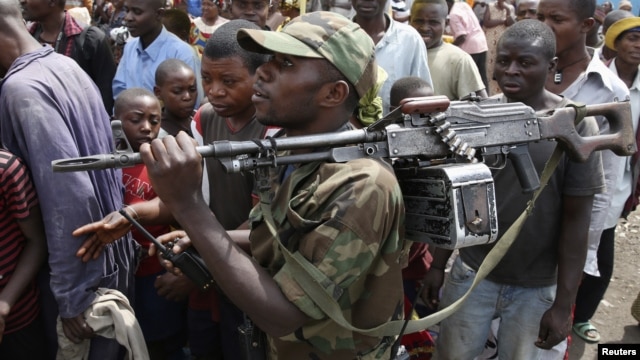By Ryan Aliman
Impunity Watch Reporter, Africa
ABUJA, Nigeria – Nigeria’s army had arrested 63 people in raids as they searched for Mrs. Kamene Okonjo, Nigerian Finance Minister Ngozi Okonjo-Iweala’s 82-year-old mother who was kidnapped on Sunday. Although Mrs. Okonjo was released by her abductors five days after she was taken, the dozens of people arrested by the army remain in custody.

Since Mrs. Okonjo’s kidnapping, both the military and police department had been on a wild hunt to find the kidnappers, conducting raids in various parts of Southern Nigeria and arresting all potential suspects.
“Already, the Inspector General of Police (IGP) has deployed his men and they are working round the clock on the issue. The IGP is on top of the situation. However, I have instructed the IGP to deploy specialist officers from Abuja if need be, to help in fishing out the culprits,” the Finance Minister told the press as he described the action taken by the police.
The IGP, meanwhile, promised the public that not only will the police rescue the Finance Minister’s mother, but they shall “fish out” her abductors and their accomplices as well. The IGP said, “operatives shall ensure that no stone is left unturned in unravelling the mystery behind the abduction of Mrs. Okonjo and bringing the evil perpetrators to book.”
In a place where kidnapping is considered “a lucrative criminal enterprise”, Nigerian forces have been taking such matters more seriously over the past years. Reports show that they have grown increasingly intolerant of suspected kidnappers, often shooting them on sight – as they did in November to 13 people suspected of abducting a Turkish man.
They would even go so far as to arrest their own. On Tuesday, the Delta State Police ordered the arrest and detention of two police officers who were supposed to be on duty at the palace of Mrs. Okonjo on the day she was kidnapped. It remains unclear whether or not they were involved in the abduction itself.
The man who dropped off Mrs. Okonjo on a main road near her home in southern Nigeria on Friday was also arrested.
Delta state governor Emmanuel Uduaghan believes that because of the stringent security measures and intensified manhunt carried out by the law enforcement agencies, Mrs. Okonjo’s kidnappers decided to let her go. “The army and police have been on their trail and a lot of raids have been done. I think because of the heat they dropped her off on the highway,” he told BBC.
When asked what was being done with those in custody now that Mrs. Okonjo has been freed, army spokeswoman Roseline Managbe simply answered, “those arrested are being questioned.”
For further information, please see:
Reuters – Kidnappers free Nigeria minister’s mother, official says – 14 December 2012
BBC News Africa – Nigeria’s Ngozi Okonjo-Iweala’s mother freed by kidnappers – 14 December 2012
Reuters – UPDATE 1-Nigeria arrests 63 in hunt for minister’s kidnapped mother – 13 December 2012
Information Nigeria – Okonjo-Iweala’s Mother’s Kidnap: Delta CP Says 2 Policemen Have Been Arrested – 12 December 2012
Reuters – Policemen held over kidnap of Nigeria minister’s mother – 12 December 2012
This Day Live – IG Orders Arrest of Abductors of Okonjo-Iweala’s Mother – 11 December 2012
Information Nigeria – Okonjo-Iweala’s Mum’s Kidnap: Suspect Arrested – 10 December 2012



